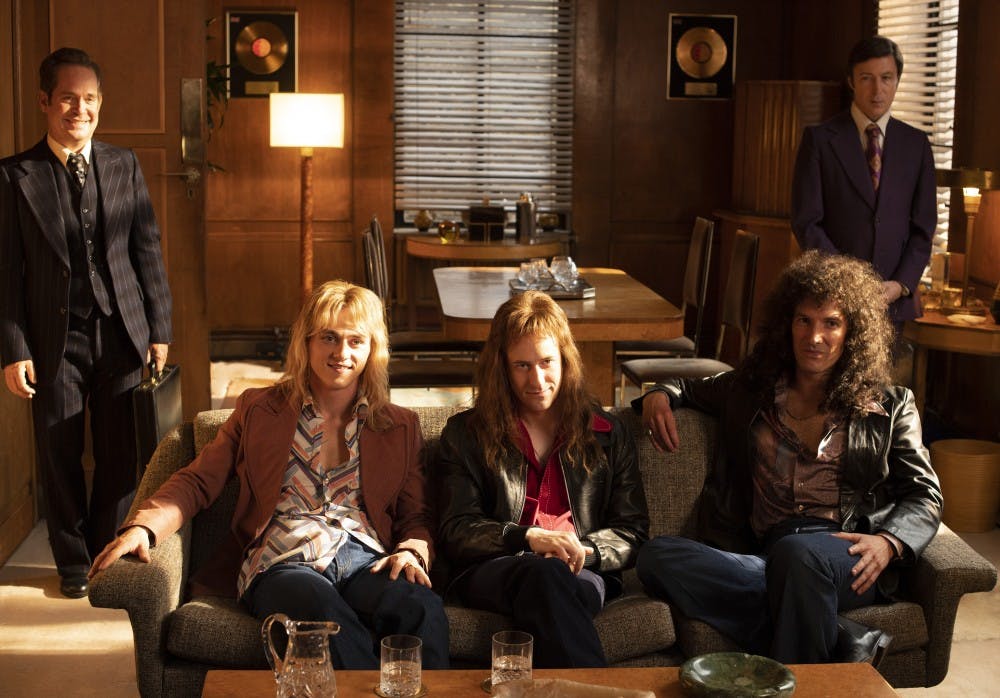In Roland Barthes’ essay, “The Death of the Author,” he asserts that critics and audiences must separate literature from its author. To acknowledge the author is to unnecessarily add background context to the piece. The phrase, “death of the author,” has come up in recent criticism around artists like J.K. Rowling and the validity of her extensive addendums to Harry Potter. Now, with the current round of Oscars coming up, we face the slight alteration of Barthes’ concepts, a proposed idea for a newer medium: The death of the director.
It is unsurprising that the discussion of content creators and their work has come up in the current phase of the #MeToo movement. Harvey Weinstein’s sexual assaults allegations forced the public to reexamine how we view the film set and its power dynamics. Weinstein is a complex problem due to the fact that a producer does not control the creative side of the film, only the logistics. Many still watch Weinstein’s films because they were not under his creative sway.
What is an audience to do, however, when a director is the source of strife? With Bohemian Rhapsody, this issue rears its ugly head. The 2018 biopic about Queen frontman Freddie Mercury had a messy development from beginning to end. First, before Rami Malek's casting, they eyed a white man to play the Indian lead, then faced a halted production schedule. Finally, they fired director Bryan Singer. Singer was removed with two–thirds of filming complete, during which Dexter Fletcher stepped up and finished the film as director.

Bohemian Rhapsody was nominated for five Oscars around the same time that a new wave of Bryan Singer’s sexual assault allegations became public knowledge. The media response was a flurry: was Singer removed from the film because of the allegations? Probably not. It was likely due to the fact that he refused to show up on–set. Should Fletcher get the credit for the film? No, since it was announced by the Director’s Guild of America that Singer would get the directorial credit. Does this mean Bohemian Rhapsody will still win awards in the upcoming season? Well, it already has.
Do we stop watching films because we know their backgrounds? Many would say no. Weinstein’s list of films is too extensive to block all of them out, but we must be watching these works knowing what is going on behind the scenes. This goes even for directors making films before the #MeToo movement—no one is stopping their enjoyment of The Shining despite knowing of director Stanley Kubrick's abuse scandals.

Yet, do we not define films by their director? To mention The Shining without Kubrick is blasphemy or The Grand Budapest Hotel without Wes Anderson an anomaly. For certain directors, their influence is more obvious—specifically ones with defined styles in cinematography, editing, or tone. The director is overseeing all aspects of the creative side. Directors are given all the credit for a film, yet their abuse is rarely acknowledged.
This issue is that film is a collaborative process. This is obvious if one hangs around to watch the credits; the list goes on for minutes—some names in large text and some much smaller. Film is unlike almost every other media in this sense. It is not one person’s idea or production, but rather the collection of hundreds of people’s time and effort. Our desire to define movies by their directors disregards the fact that often, directors do not write or edit or score their films. The effect is achieved by all.
With Bohemian Rhapsody, many are suggesting that the Academy should not nominate or award the film because of Singer’s allegations. On one hand, Singer still benefits from the film gaining popularity and esteem—he could reportedly make up to $40 million from Bohemian Rhapsody's box office gross in back–end payments. On the other, so does everyone in its production, particularly the previously unnominated Rami Malek. The issue is a multifaceted one, though the discussion is rooted in one thing: the assumption that the director rules all.
It is impossible to know just how much sway and power a director has over every other aspect of production unless one is onset. It is impossible to fully understand these power dynamics unless one experiences it. This is not to say that we must embrace “the death of the director,” but the public mindset must shift to understand how collaborative film is. Otherwise, the hard work of hundreds of others will go unacknowledged.







